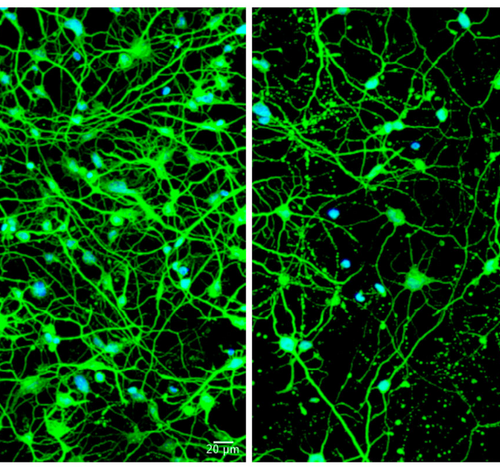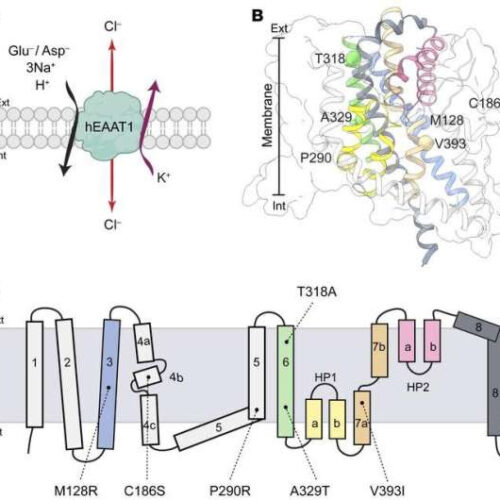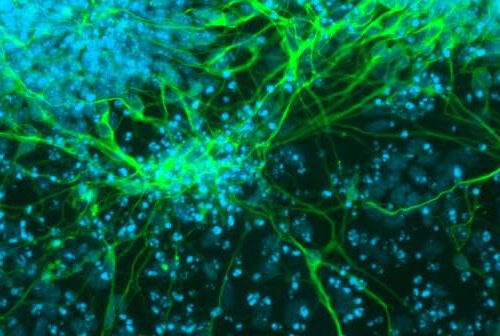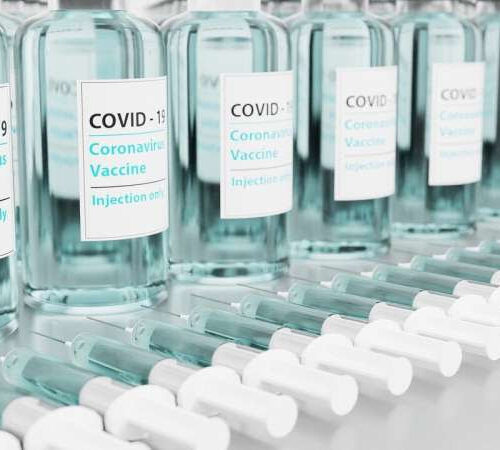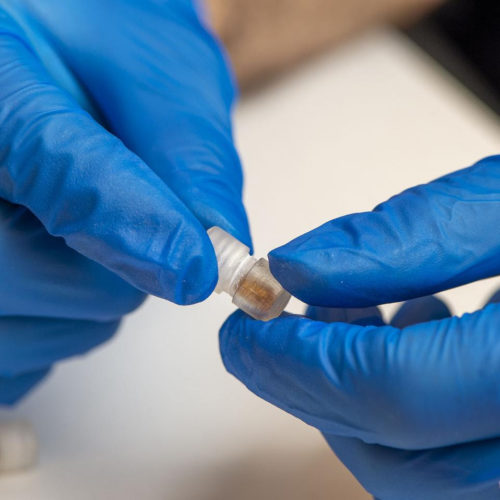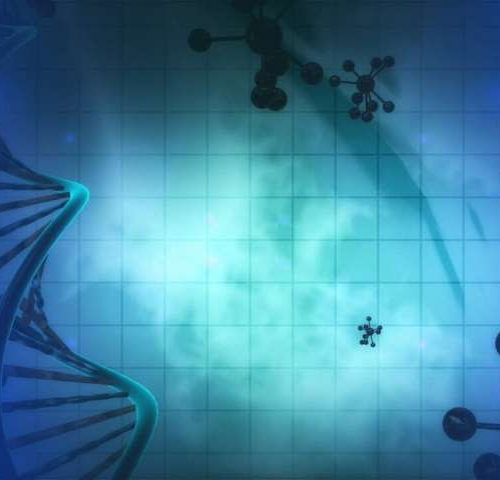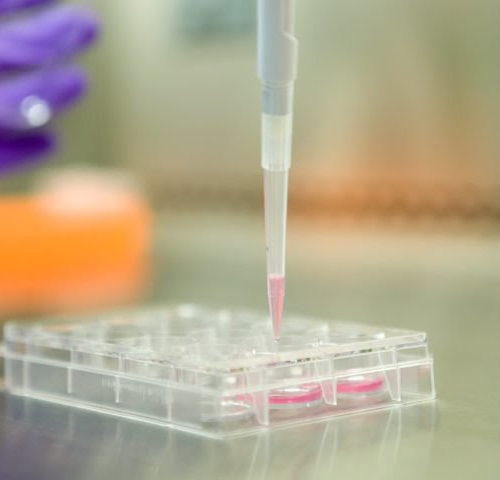Physical therapy for neurological disorders can help manage several conditions. Healthcare professionals may use different methods to help manage symptoms and improve quality of life. Neurological conditions affect the brain, nerves, and spinal cord. People with these conditions may have changes to their senses, movement, and how they communicate. They may also experience changes in...
Tag: <span>Neurological disorder</span>
Cellular housekeeping process implicated in fatal neurological disorder
WASHINGTON UNIVERSITY SCHOOL OF MEDICINE IMAGE: A STUDY FROM WASHINGTON UNIVERSITY SCHOOL OF MEDICINE IN ST. LOUIS SHOWS THAT AS PATIENTS AGE, HUNTINGTON’S DISEASE IMPAIRS AUTOPHAGY, WHICH ELIMINATES WASTE FROM CELLS. SHOWN AT LEFT ARE NEURONS TRANSFORMED FROM SKIN CELLS OF A YOUNG PATIENT WITH PRE-SYMPTOMATIC HUNTINGTON’S DISEASE. ON THE RIGHT ARE NEURONS TRANSFORMED FROM...
The surprising twist behind a rare neurological disorder
by University of Sydney Stoichiometry of transport and locations of EA6 mutations in the hEAAT1 structure. (A) The transport of each substrate molecule (glutamate or aspartate) is coupled to the cotransport of 3 sodium ions (Na+) and 1 proton (H+), and the countertransport of a potassium ion (K+); the transport process also activates a thermodynamically...
Histone protein influences both neurological disorder and cancer
by Will Doss, Northwestern University Mutations in a histone regulator protein are linked to both a rare neurodevelopmental disorder and to some cancers, according to a study published in the journal Genes and Development. The protein, PHIP/BRWD2, binds to three different histone modifications that are associated with active gene expression, which explains it’s two-sided impact,...
A novel neurological disorder associated with the Polycomb complex identified
TEXAS CHILDREN’S HOSPITAL A multi-institutional study has discovered spontaneous mutations in RNF2 (RING2) gene as the underlying cause of a novel neurological disorder. This Undiagnosed Diseases Network (UDN) study was led by Dr. Shinya Yamamoto, investigator at the Jan and Dan Duncan Neurological Research Institute (NRI) at Texas Children’s Hospital and assistant professor at Baylor...
Rare neurological disorder documented following COVID-19 vaccination
by Wiley Credit: Pixabay/CC0 Public Domain In two separate articles in the Annals of Neurology, clinicians in India and England report cases of a rare neurological disorder called Guillain-Barré syndrome after individuals were vaccinated against COVID-19. Both reports describe an unusual variant of Guillain-Barré syndrome characterized by prominent facial weakness. Seven cases were reported from a regional medical center...
NAPPERS MAY HAVE HIGHER NEUROLOGICAL DISORDER RISK
UNIVERSITY OF ROCHESTER The complex dynamics that make up the brain’s unique process of waste removal are synchronized with the master internal clock that regulates the sleep-wake cycle, according to a new study conducted in mice. The findings suggest that people who rely on sleeping during daytime hours are at greater risk for developing neurological...
Swallowing this colonoscopy-like bacteria grabber could reveal secrets about your health
ONCE SWALLOWED, THIS CAPSULE IS DESIGNED TO COLLECT BACTERIA THROUGHOUT THE GUT. A SCIENTIST UNSCREWS THE CAP TO RETRIEVE THE SAMPLE AFTER THE CAPSULE HAS LEFT THE DIGESTIVE SYSTEM. view more Your gut bacteria could say a lot about you, such as why you’re diabetic or how you respond to certain drugs. But scientists can...
Novel approach reduces SCA1 symptoms in animal model
by Baylor College of Medicine cs, pediatrics and neuroscience, and Ralph D. Feigin, M.D. Endowed Chair at Baylor. “When we identified the gene, we learned that mutations can cause the ATXN1 protein to remain in cells longer than normally. This is bad news for neurons as too much ATXN1 leads to their death.” The findings...
“Self-eating” Process of Stem Cells May be the Key to New Regenerative Therapies
The self-eating process in embryonic stem cells known as chaperone-mediated autophagy (CMA) and a related metabolite may serve as promising new therapeutic targets to repair or regenerate damaged cells and organs, Penn Medicine researchers show in a new study published online in Science. Human bodies contain over 200 different types of specialized cells. All of...

